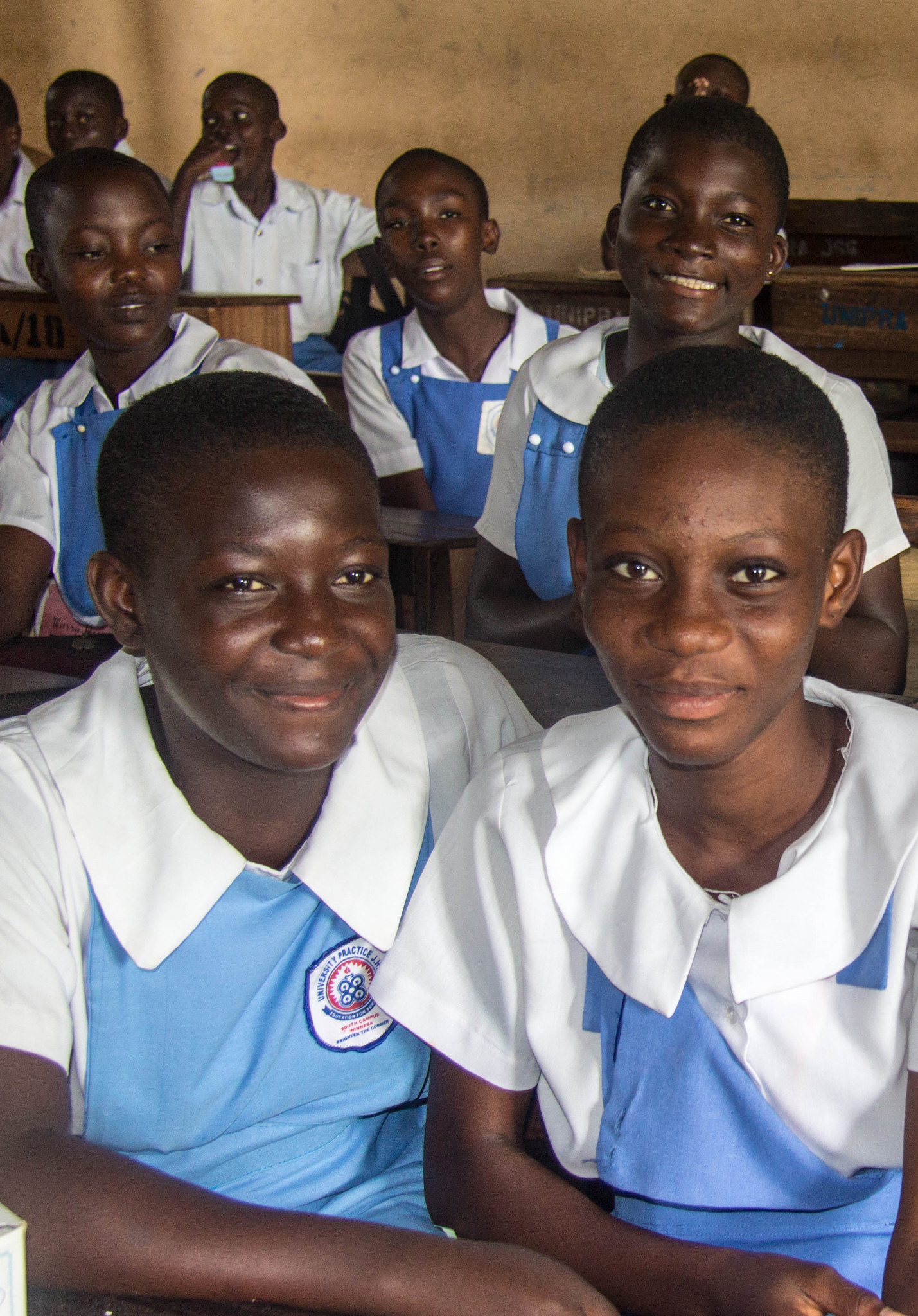“Ghana’s free education policy – a good move”
February 20It’s been two years since the Government of Ghana announced a new policy making education for Senior High School (SHS) students in Ghana free of cost, and Bismark Akoto, 23 a Correspondent from Legon, Ghana argues that despite the challenges, many students who would have been denied education at the SHS level, now have a brighter future.
Education is a right, like the right to have proper food or a roof over your head. Article 26 of the 1948 Universal Declaration of Human Rights States that, “Everyone has the right to education.” Additionally, The United Nations has pointed out that, “education is not only a right but a passport to human development.
Since the September 2017/ 2018 academic year, thousands of Ghanaian youths 15 to18 years old have been given a passport to human development through a government policy to make Senior High School (SHS) education tuition free.This free SHS policy has removed admission fees, library fees, science resource centre fee, computer laboratory fees, examinations fees, utility fees, boarding facility user fees, and meals now come at no cost to all SHS students (boarding). In addition, all day students are entitled to a meal at school – for free.This policy is a big statement and one of the biggest achievements of this wonderful nation.
The journey started with the framers of the 1992 constitution of Ghana who made provisions for basic educational rights. Article 25 clause 1 A and B clearly state that (i) basic education shall be free, compulsory and available to all. (ii)secondary education in its different forms, including technical and vocational education, shall be made generally available and assessable to all, by every appropriate means, and in particular, by the progressive introduction of free education.
It is in this context that the Government of Ghana (GOG) in 1995 introduced the Free Compulsory Basic Education Programme (FCUBE). After the implementation of this policy, successive governments went on to provide some cushion to Senior High School (SHS) students in the three NorthernRegions of Ghana in the form of scholarships and feeding grants.
On 11th February 2017, President of Ghana, Nana Addo Dankwa Akuffo Addo announced a policy to make Senior High School education tuition free, opening a new chapter for young people whose education would not have gone beyond grade 9 because their parents could afford to pay for it.At Grade 9 the Ministry of Education uses the Computerized School Selection and Placement System (CSSPS) to place Ghanaian students in the Senior High School System (SHS) and their statistics show that prior to free SHS education, 25% of the students who were placed by the CSSPS yearly, did not enrol in SHS – many because of financial reasons.This is very scary for a nation that has approximately 57% of her population under the age of 25.
In the first year of the implementation of the free SHS policy, Dr. Matthew Opoku Prempeh, the Minister of Education at a press briefing in Accra in November 2017 disclosed that just over 358,000 students had enrolled under the free senior high school policy, an improvement of 75% from 2016. As if that wasn’t enough, it was expected that enrolment for the September 2018/2019 academic year would hit around 472,730 students.
The total seats available at the time was 290,737 so overcrowding related issues at senior high schools was inevitable. The exigencies of the situation called for a double-track system to be introduced to create adequate seating from the existing classrooms. With the double track system, schools have a calendar of two semesters in a year to be shared between two batches of SHS students. To make this stopgap system maintain its quality , teaching hours were increased from six hours to eight hours per day.
As I conclude, I ask one question. With the over 100,000 increase in enrolment between the 2017/2018 and the 2018/2019 academic year, had it not been the free SHS policy, what would have been the fate of these young ones? It is very obvious that many of these young ones mainly from less privileged homes wouldn’t have made it to the senior high level.
It is thus not surprising that at a high level event to mark the achievement of the Education Above All Foundation last year, the Executive Director of the United States International Children’s Fund(UNICEF), Mrs. Henrietta Holsman Fore commended the President of the Republic for the decision taken in 2017. According to Mrs. Fore, “ Having free secondary school is probably the greatest gift you can give a family and a girl”
I personally believe this policy is a step in the right direction because the socio-economic background of a child shouldn’t be a hindrance to his or her quest to access education. Undoubtedly, Ghana is on the verge of achieving the SDG 4. Benjamin Franklin, an American polymath and one of the founding fathers of the United States once said, “an investment in knowledge pays the best interest”. The bold step taken by Ghana will soon yield good fruits and Ghana shall prosper.
Photo credit: OER via Flickr (license)
………………………………………………………………………………………………………………
Opinions expressed in this article are those of the author and do not necessarily represent the views of the Commonwealth Youth Programme. Articles are published in a spirit of dialogue, respect and understanding. If you disagree, why not submit a response?
To learn more about becoming a Commonwealth Correspondent please visit: http://www.yourcommonwealth.org/submit-articles/
…………………………………………………………………………………………………………………







